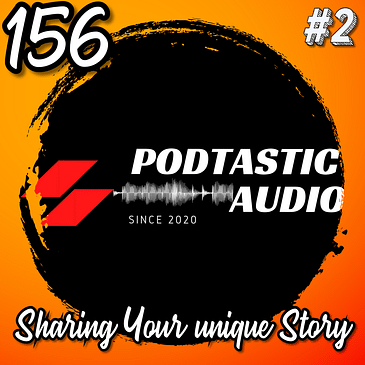In this episode of Podtastic Audio, I, Chris, dive deep into the art of storytelling to help you elevate your podcast. As I broadcast from the bustling streets of New York City, I can't help but share some personal anecdotes, including my early days working at a pizza place called "Wanna Pizza." Those experiences not only shaped my love for pizza but also taught me valuable lessons about authenticity and connection.
I emphasize the importance of being genuine and relatable to build trust and a strong connection with your audience. Throughout the episode, I outline three key points: the role of authenticity, the relatability of your story, and practical tips for maintaining an authentic voice. By sharing my own stories, I illustrate how personal experiences can make your podcast more engaging and relatable.
I believe that good storytelling is the cornerstone of a successful podcast. When you share real-life experiences, you create a bond with your listeners that goes beyond mere content consumption. They start to see you as a real person with genuine experiences, and that builds trust.
One of the key points I discuss is the role of authenticity. In the podcasting space, authenticity is often touted as a crucial element for success. When you tell authentic stories that come directly from your own life, you build trust with your audience. They start to see you as someone they can relate to, someone who understands their struggles and triumphs.
Another important aspect is the relatability of your story. Knowing your audience is crucial here. If you understand who your listeners are and what they need, you can craft your stories to resonate with them. For example, if you're doing a podcast about pizza, sharing stories about your own mishaps and successes in the pizza world can make your content more engaging and relatable.
I also provide practical tips for maintaining an authentic voice. One of the most important things is to be yourself. Don't try to mimic someone else's style or content. Your audience will see right through it. Instead, focus on being original and true to yourself. Use engaging dialogues and conversational language to make your stories come alive.
Lastly, I talk about the importance of audience feedback. Your listeners can provide valuable insights that you can weave into your stories. This not only makes your content more relevant but also shows your audience that you value their input.
As I wrap up this episode, I encourage you to think about your own personal stories and how they can enhance your podcast. Sharing your unique experiences can help you build a strong connection with your audience, making your podcast truly stand out. So, until the next episode, happy podcasting!
00:00:00: Introduction and Welcome
00:01:01: Chris's New York City Experience
00:03:03: Working at Wanna Pizza
00:03:34: Episode Overview: Storytelling in Podcasts
00:04:04: The Role of Authenticity
00:06:08: Relatability to Your Audience
00:07:40: Practical Tips for Authentic Storytelling
00:09:13: Engaging Dialogue and Conversational Language
00:09:44: Incorporating Audience Feedback
00:10:15: Building a Connection with Your Audience
Thanks so much for listening, I really appreciate it so much. Sign up for my newsletter so you never miss a moment. Podtastic Audio Newsletter
00:11:16: Conclusion and Teaser for Next Episode
